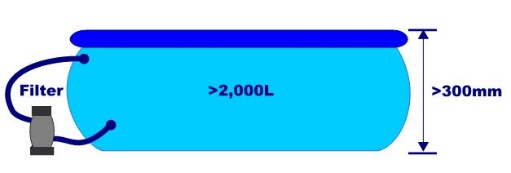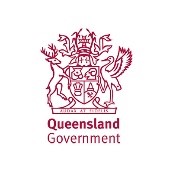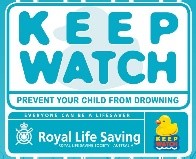Drowning is one of the leading causes of death in Queensland for children under the age of five. Active adult supervision, swimming lessons, learning basic CPR and compliant pool fencing can save lives. Queensland’s current pool safety laws were introduced in 2009 and apply to all regulated swimming pools in Queensland. The pool safety legislation is administered by the Queensland Government and you are encouraged to visit the websites of the Department of Housing and Public Works (DHPW) and the Queensland Building and Construction Commission (QBCC) for comprehensive information relating to pool safety laws. Please refer to the resource list at the bottom of this page for other useful pool and water safety information and links to relevant organisations.
You can download the Summer is Coming checklist to make sure your pool/spa area is ready for the warmer months.
So what is a regulated swimming pool?
Queensland pool safety laws define a regulated swimming pool as a private pool or spa on a residential premises that meets any of the following criteria:
 Capable of holding water to a depth greater than 300 mm
Capable of holding water to a depth greater than 300 mm- Has the capacity to hold over 2,000 litres of water
- Has a filtration system.
Most portable/temporary pools or spas purchased from a department store are likely to be regulated swimming pools/spas, the exception being small wading pools that do not exceed any of the above criteria.
More detailed information is available on Temporary Swimming Pool and Portable Spa Fact Sheet.
The following are not regulated swimming pools:
- Ornamental ponds manufactured and used for ornamental purposes
- Dams used for aquaculture, water storage or similar
- Spa bath in a bathroom that is not continuously filled.
Pool owner responsibilities
Pool owners with a regulated pool must comply with current pool safety laws and all relevant legislation regarding the construction, maintenance or alteration of a regulated pool and safety barriers. The below topics provide information about mandatory approvals, inspections, certificates and registration of regulated pools. Read more about Queensland’s current pool and spa safety standards in this brochure.
Regulated pools and building permits/approvals |
|---|
|
Compliant pool safety barriers |
|---|
|
Pool safety certificates |
|---|
|
Queensland Government Pool Register |
|---|
|
Cardiopulmonary resuscitation (CPR) signage |
|---|
|
Health and water quality |
|---|
|
Pool and water safety resources
Refer to the below links to a number of organisations with programs and resources aimed at educating pool owners, adults and children about improving pool/water safety and reducing the number of preventable drownings through active supervision, CPR, learn-to-swim programs and compliant safety barriers:
| Organisation | Website | Description |
|---|---|---|

| Department of Housing and Public Works (DHPW) - Pool Safety webpage | Responsible for administering pool safety standards. This website contains access to the pool safety standards, owner and occupier obligations and general advice about pool safety. |
| Queensland Development Code - MP3.4 Swimming Pool Barriers | Statewide mandatory standards for pool barriers in Queensland. | |
| Building Regulation 2021 | Statewide mandatory standards for building regulations | |

| Queensland Building and Construction Commission (QBCC) - Pool Safety | Statutory body responsible for regulating the pool safety standards. This website contains information, checklists and safety tips for pool owners. |
| My QBCC | Website with access to pool safety inspector and property searches. | |

| Australian Resuscitation Council (ARC) | Access to current resuscitation guidelines and CPR signage (ANZCOR Basic Life Support Flowchart). |

| Queensland Family and Child Commission - Seconds Count Campaign | Includes a range of videos, tips and factsheets about keeping children safe around water. |

| Royal Life Saving Australia - Keep Watch Home Pool Safety | Access to various resources including a home pool safety app and information regarding pool toys, wading pools and pool safety devices. |
| Kids Alive - Do the Five | Provides targeted resources for children, parents, teachers and community groups. Includes learning activities, videos and age based safety and swimming tips. | |
| 91妻友 Council's SEAL Pool Safety Programs | A range of programs provided by council to encourage active adult and child participation in programs such as learning to swim, supervision, CPR and pool fence compliance, in order to educate the community to the benefits of water safety. |